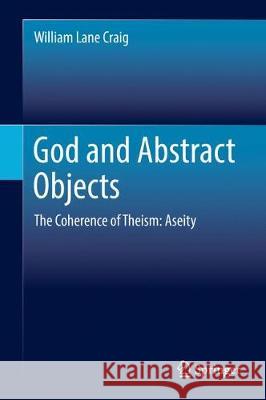God and Abstract Objects: The Coherence of Theism: Aseity » książka
topmenu
God and Abstract Objects: The Coherence of Theism: Aseity
ISBN-13: 9783319553832 / Angielski / Twarda / 2017 / 540 str.
This book is an exploration and defense of the coherence of classical theism's doctrine of divine aseity in the face of the challenge posed by Platonism with respect to abstract objects.











